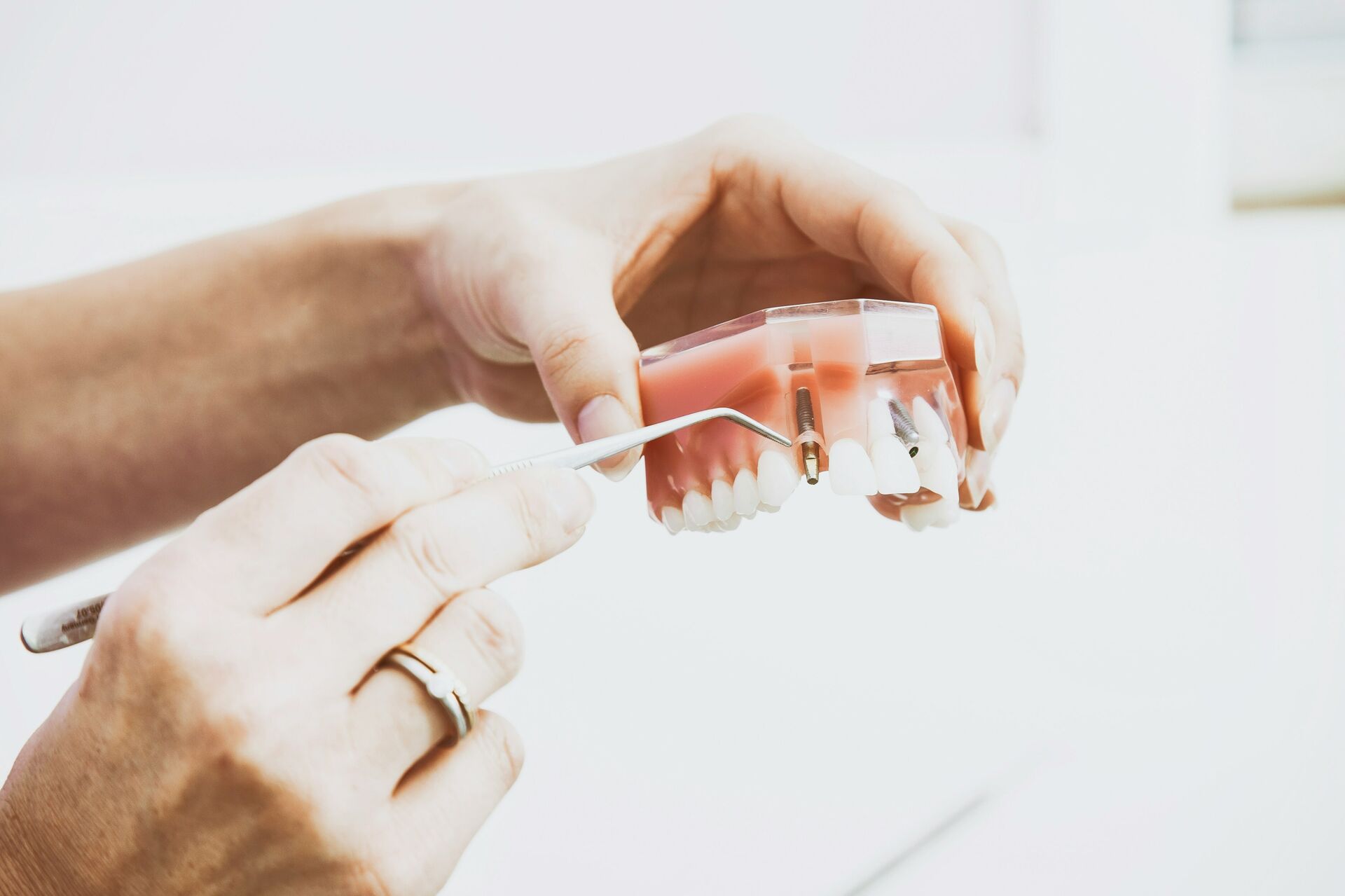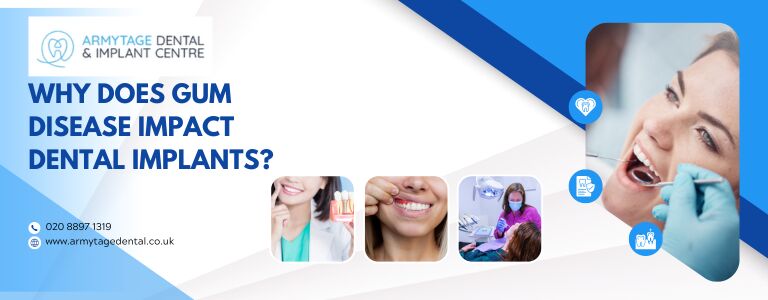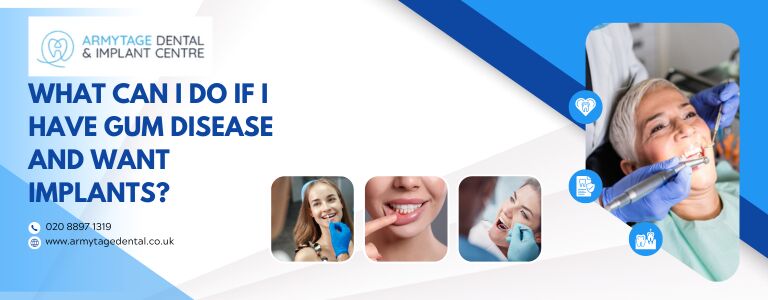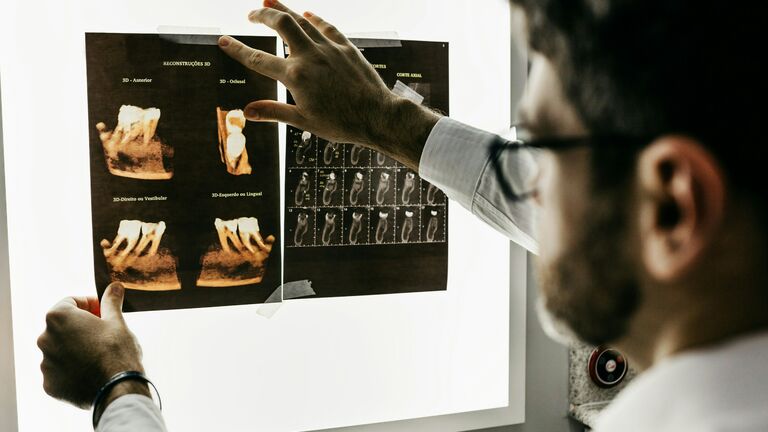
Can I Get Implants with Gum Disease?
Curious about dental implants? The first step in this treatment journey is to find out if you are an eligible candidate. Not everyone can benefit from dental implants for a wide range of reasons.
This could be due to a lack of bone density, so there is not enough to support the implant. It could also be down to lifestyle factors such as smoking which could increase the risk of implant failure.
Another common reason that patients are turned away for dental implants is gum disease, but it doesn’t have to be this way. Read on to learn more about dental implants and gum disease.
Can I get dental implants with gum disease?
The short answer is, no, you can’t get dental implants with gum disease. But active gum disease doesn’t have to be the end of your implant journey. Gum disease is highly treatable and can be tackled before moving forward with your implant treatment. So if you have active gum disease and you’re worried about how this will impact your treatment, the good news is that it doesn’t have to.

Why does gum disease impact dental implants?
Gum disease is an inflammation of the gum tissue, and it puts you at increased risk of implant rejection. This is because of a condition known as peri-implantitis which affects the socket that is placed in the jaw bone to house the implant.
The infection spreads from the gums to the socket, causing the implant to come loose. When this happens, the only option is to remove the implant and allow the socket to heal.
After the socket has healed, it may be difficult to repeat the procedure, so it’s common to recommend a denture to help close the gap in your smile.

What can I do if I have gum disease and want implants?
The good news for those with active gum disease who are also considering implants is that gum disease is very treatable. Once you have the gum disease under control, you can then start to explore your implant options.
The first step is to book an appointment with your dentist and explain your plans to get implants. They will examine your teeth, gums and jaw to determine if you are currently a candidate. If you have active gum disease, they will refer you to the dental hygienist.
Regular professional cleanings will help to rid your mouth of the bacteria and plaque deposits that lead to gum disease. You will also need to follow an at-home care plan that will typically include brushing twice a day, flossing and using a special mouthwash. This will help you to form good oral health habits for when you get your dental implants.

What if I get gum disease after implants?
If you already have implants and you notice the early signs of gum disease, it’s important to act quickly to avoid widespread problems. Start by booking an appointment with your dental hygienist to review your oral healthcare routine and enjoy a professional cleaning.
Your hygienist will be able to advise you on the best course of action to ensure this does not escalate into peri-implantitis.
Final thoughts
While gum disease might not be optimal for dental implants, it’s a highly treatable condition, so it doesn’t have to mean the end of the road for your treatment. By taking steps to address the condition head on and making small changes to your oral health routine, you should be able to treat your gum disease so that it doesn’t stand in the way of your dental implant dreams.
Get in touch with our team today to book your initial consultation and find out if you’re a good candidate for dental implants.
Call us to make an appointment
We are accepting new patients and our team are here to help
Call us now
Teeth Whitening Offer £270
Teeth Whitening and Hygiene offer for £270 until end of April 2021.

Invisalign FREE teeth whitening
Invisalign FREE teeth whitening
08.04.2024
5 Signs You Should See an Endodontist

04.04.2024
What Can I Eat After Dental Implant Surgery?

04.04.2024
Can I Have Dental Implants if I Smoke?

Call us to make an appointment
We are accepting new patients and our team are here to help